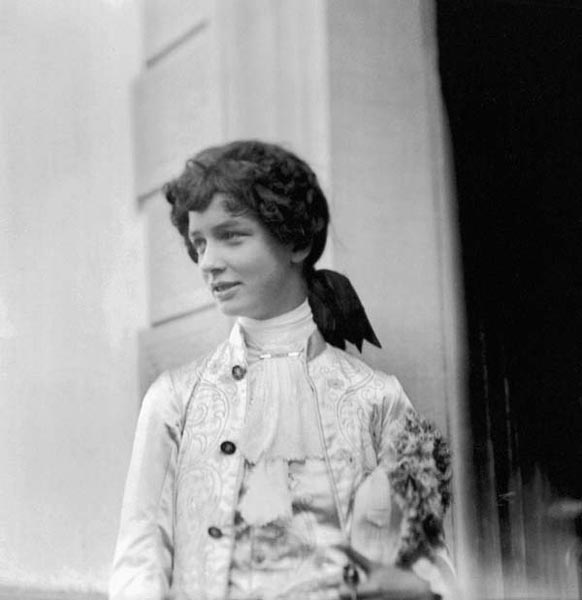Sometimes Berlin can get to you in all the worst ways. It can be intensely irritating, its weather miserable, its people likewise (and rude, and thoughtless), its streetscapes mute and uninspiring and its rhythms relentlessly mid-paced.
And then, sometimes, on a mild spring evening just as the last of the trees along your cobbled street has greened and great pink rococo clouds of blossoms weigh heavy on the cherry trees in the park, you get to hear a talk about one of the most fascinating European women of the 20th century, in your neighbourhood, in your native tongue.
And you realise – actually, you’re kind of lucky.
 A few nights ago the small but perfectly-formed English-language bookshop Dialogue Books hosted A Life Spent Searching: The Travels and Writings of Annemarie Schwarzenbach. The main speaker was historian Alexis Schwarzenbach, great-nephew of the Swiss traveller-writer in question, and author of the lavishly illustrated biography Auf der Schwelle des Fremden (“On the Threshold of the Foreign”). Actually you could translate it as “On the Threshold of the Other”, if you were in a ’90s-identity-politics kind of a mood (scare quotes around “other” optional). In any case the fact that there is no English version I can reference points to the ongoing mystery of Annemarie’s low profile in the Anglophone world.
A few nights ago the small but perfectly-formed English-language bookshop Dialogue Books hosted A Life Spent Searching: The Travels and Writings of Annemarie Schwarzenbach. The main speaker was historian Alexis Schwarzenbach, great-nephew of the Swiss traveller-writer in question, and author of the lavishly illustrated biography Auf der Schwelle des Fremden (“On the Threshold of the Foreign”). Actually you could translate it as “On the Threshold of the Other”, if you were in a ’90s-identity-politics kind of a mood (scare quotes around “other” optional). In any case the fact that there is no English version I can reference points to the ongoing mystery of Annemarie’s low profile in the Anglophone world.
The evening was a cross between a reading and a slide show. But what slides! A young Annemarie, for instance, dressed as the Rosenkavalier, in a costume which belonged to her mother’s lover, a female opera singer. Leaving aside for a moment the dizzying layers of gender invested in the Rosenkavalier character, the back story instantly punctures the convenient myth of Annemarie as an unconventional offshoot of a solidly conservative family.
I thought myself reasonably well-versed in Schwarzenbach’s life but I still learnt a lot. Motifs recur; Alexis Schwarzenbach pointed out the similarity between two of Annemarie’s favourite places in the world, a valley in Persia and her beloved Engadin in Switzerland, where she would eventually die. Many of Annemarie’s own photos flashed up and at appropriate points in the narrative, there were readings from two of her works which have recently appeared in English. Even better, they were each read by the translator responsible.
The two volumes book-end the 1930s. Lyric Novella, translated by Lucy Renner Jones, was written during Schwarzenbach’s Berlin stint in the early 1930s, and in it she puts herself into the Rosenkavalier role of a young buck about town infatuated with an older woman. All the Roads are Open, translated by Isabel Fargo Cole, is a chronicle of Schwarzenbach’s car journey to Afghanistan just as the Second World War got underway. Although she was travelling with countrywoman Ella Maillart, the account was, as the translator pointed out, often rendered in the first person singular.
Both of these beautifully translated, handsomely bound editions are highly recommended, and an English version of Death in Persia is expected later in the year. These publications, and events such as this, will hopefully secure a greater profile for Schwarzenbach’s vivid writing and amazing life story among English readers.





“An English version of Death in Persia is expected later in the year…” and I thought I couldn’t get more excited by this post! You’re a lucky chap, my dear.
Onward with the Schwarzenbach revival!
So glad you enjoyed the evening! Stay in touch!
Thanks Isabel!
What a glowing account of the evening – and rightly so. Thank you for coming!
Thanks for the comment!
Pingback: Pearls: Annemarie Schwarzenbach « Strange Flowers
Pingback: Circles: Erika and Klaus Mann « Strange Flowers
Pingback: Dress-down Friday: Annemarie Schwarzenbach | Strange Flowers
fascinating person, a fine photographer and intrepid adventurer into a world whose culture has been obliterated…Need to read her!
Those two translations are a great place to start, but unfortunately there isn’t much more by or about her in English.